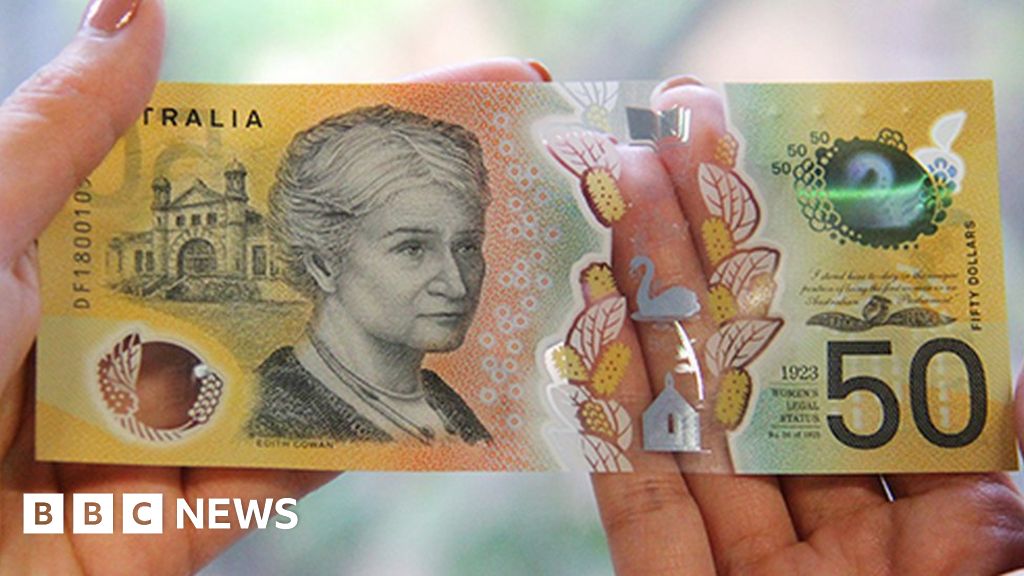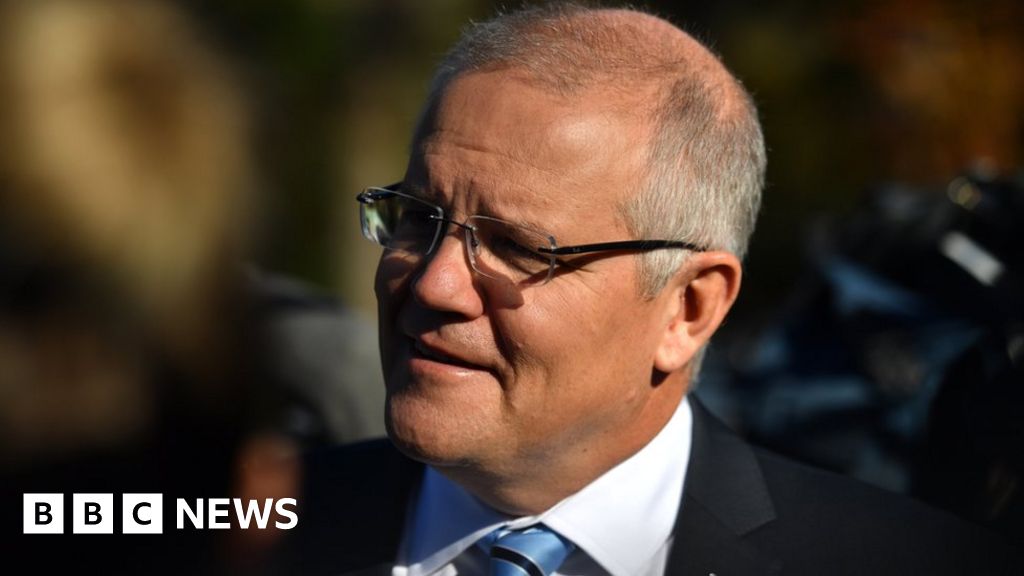 Australia's new $50 bank note, as seen in a promotional video from the Reserve Bank of Australia, and its misspelling.AP Photo/Rick Rycroft//YouTube/RBAInfo/INSIDER
Australia's new $50 bank note, as seen in a promotional video from the Reserve Bank of Australia, and its misspelling.AP Photo/Rick Rycroft//YouTube/RBAInfo/INSIDER
- Australia made a spelling mistake on 46 million of its new AU$50 banknotes.
- It misspelled the word "responsibility" in an extract from the speech given by the country's first female member of parliament in 1921. It spelled the word "responsibilty" with a final "i" missing.
- The text is small, but the Reserve Bank of Australia said it would fix the error in the next print run.
- The newly designed note was introduced in October 2018, with the RBA highlighting that the most widely used note in the country was now more secure.
- Visit INSIDER's homepage for more stories.
Australia printed 46 million of its new AU$50 banknotes with a spelling mistake.
The new design of the notes was billed as part of the "next generation of banknotes" when it was introduced in October 2018 by the Reserve Bank of Australia, which touted new security features and a durable material.
But the RBA confirmed on Tuesday that the 46 million notes — worth AU$2.3 billion — have a spelling mistake, the UK's The Guardian newspaper reported.
The error is contained in an extract of a speech given by Australia's first female member of parliament as she entered office.
Read more: Australia is the most popular destination in the world for migrating millionaires
The bank note includes the text "It is a great responsibilty [sic] to be the only woman here, and I want to emphasize the necessity which exists for other women being here" from Edith Gowan's 1921 in speech — misspelling "responsibility" as "responsibilty."
 The world "responsibility" was printed with a missing "i" in Australia's $50 note.AP Photo/Rick Rycroft/INSIDER
The world "responsibility" was printed with a missing "i" in Australia's $50 note.AP Photo/Rick Rycroft/INSIDER
The text that contains the error is small, and most people would need a magnifying glass to see it. But an RBA spokeswoman told The Guardian that it would correct it "at the next print run."
 The error is tiny, contained in the note's micro-text. Reserve Bank of Australia/INSIDER
The error is tiny, contained in the note's micro-text. Reserve Bank of Australia/INSIDER
Australian radio station Triple M shared a close-up image of the mistake on Thursday, claiming that they had been tipped off to the error.
The AU$50 note — worth around US$35 — is the most widely circulated banknote in Australia, according to the RBA. It includes portraits of Gowan on one side and of David Unaipon, an Aboriginal writer and inventor, on the other. It displays extracts from Cowan's speech and from Unaipon's book: "Legendary Tales of the Australian Aborigines."
The notes also include a number of security features to "prevent counterfeiting," including clear windows and parts that appear to change color in certain lighting.
It has raised bumps that allow people with impaired vision to distinguish it from other bank notes.
The RBA described its introduction as a "milestone in the upgrade of Australia's banknotes." It is printed on polymer, which is more durable than paper, and is harder to counterfeit.
Den Originalartikel gibt es auf INSIDER. Follow INSIDER on Facebook. Copyright 2019. Und ihr könnt INSIDER auf Twitter folgen.
Let's block ads! (Why?)
https://www.businessinsider.com/australia-spelling-mistake-46-million-50-banknotes-2019-5
2019-05-09 10:28:17Z
CAIiEGpqhp-9oLNAVfjq0YaEOg8qLQgEKiUIACIbd3d3LmJ1c2luZXNzaW5zaWRlci5jb20vc2FpKgQICjAMMJD-CQ







